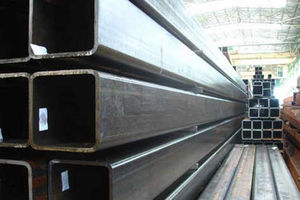Steel prices set to soar by 60 per cent
Steel prices are set to soar by 60 per cent this year — providing a boom for some Black Country firms but potentially increasing the region's problem with metal theft.

Steel prices are set to soar by 60 per cent this year — providing a boom for some Black Country firms but potentially increasing the region's problem with metal theft.
Industry experts expect to see the biggest jump in the cost of steel since the 1940s, new figures today reveal.
That will help companies like Tata Steel Europe, formerly Corus, which has its UK distribution centre in Wednesfield and 12 sites in the region with around 1,000 staff.
But it will hit manufacturers and factories who rely on steel as a raw material.
Higher prices will also make metal more attractive for thieves. Lead roofs, manhole covers, sub-station wiring and even post boxes have been stolen in recent months by gangs who sell their wares to scrap dealers.
There were 600 thefts in just seven weeks over the summer in the Black Country, up by 240 per cent on the same period in 2009 and fuelled by rising prices.
The expected price rise in 2011, to an average of just under £610 a ton, has been caused by demand in the Middle East and the Australian floods which have shut down coal mines needed in steel production.
Stewart Towe, chairman of Smethwick-based cold-rolling steel experts Hadley Group, and of the Black Country Local Enterprise Partnership, said: "I would be a brave man to put a figure on how it will affect us. The market is still volatile. Steel is competing with the other three main commodities in the market with plastic, cements and wood.
"If steel prices rise to a point where it prices them out of the market it would be a disadvantage and you've got to take your profit margin away from the increased cost of raw materials."
UK Steel said there was 9.4 million tons of output in 2010 compared with 7.5 million tons in 2009. The figure is due to rise again this year.





